Fortyfying foods
Since ancient times food has been used as a natural remedy not only to prevent colds, flu and other common respiratory ailments but also to cure them. Over time, Western science has proven that a balanced and nutrient rich diet can help the body to fight against illnesses.
WARNING
You should always consult your doctor before changing your diet.
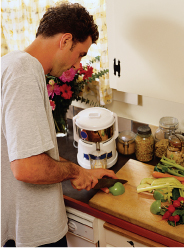
+ The respiratory system is made up of a set of organs -the lungs, diaphragm and respiratory muscles- that transport oxygen to the body, which the cardiovascular system needs to function. The respiratory and cardiovascular systems, intrinsically related and delicate mechanisms, need essential nutrients to function properly. Many of these nutrients are antioxidants that help to protect the body against free radicals (unstable compounds that cause cellular and tissue damage) and help to strengthen your body's immune system.
A diet that includes poli-unsaturated fats (unprocessed oils and seeds) stimulates our body's immune system, while a diet high in saturated fats (fats derived from red meats, butter, and dairy products) can increase your body's susceptibility to colds, flu, infections and other respiratory ailments.
It's proven that people who eat a high fiber and mono-unsaturated and poli-unsaturated fats rich diet based on vegetables and grains can fight bacteria and viruses better than those with a poor diet. Also, a balanced diet helps to improve your overall health.
Your body can not store vitamin C, therefore it must be consumed daily. It is a vitamin that helps to protect your body against illnesses. When our bodies lack vitamin C, our immune system weakens, opening the door to bacteria and viruses.
VITAMINS AND MINERALS
Our bodies need vitamins and minerals for specific uses in the body, especially for maintaining the body's immune system. Those of us eating a diet lacking vitamins and minerals tend to get colds and suffer from the flu (from slight to more serious symptoms).
Some of us with unhealthy daily habits need a higher intake of vitamins and minerals. Smokers, for example, need a higher amount of vitamin C than non-smokers. If you are managing a lot of stress, you need a higher daily intake of vitamins and minerals to stay healthy and to fight against respiratory infections.
In the following pages you will find a list of nutrients that are fundamental in fighting against colds and flu.
GARLIC BEVERAGE
Crush or finely chop 5 cloves of garlic. Mix with 5 spoonfuls of honey and add 1 cup of lukewarm water. Let sit 10 minutes and filter. This mixture can not be used the next day, so it's best to prepare the mixture fresh and have right away.
GARLIC
Garlic is a complete vegetable, providing proteins, sugars, calcium, phosphorus, iron and vitamins B, B 1 and C. Antibiotic properties found in garlic are a direct result of the allicin produced from raw, crushed garlic. Garlic helps to support the immune system, especially when eaten raw, but also cooked, it can help to fight against tonsillitis and sore throats.

Vitamin A
This vitamin is converted from beta-carotene (which helps to support vitamin A). It is one of the principal antioxidants found in nature. Vitamin A plays an important role in preventing colds, flu and other respiratory illnesses. It is also known as retinol, which supports eye vision and generates pigments in the retina. Vitamin A is found in animal products such as eggs, meat, milk, kidney and liver; beta-carotene is found in fruits and vegetables that are orange, red and dark green like sweet potatoes, yams, papaya, spinach, broccoli, carrots and squash.
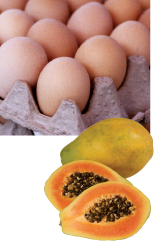
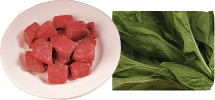
Vitamin C
Also known as ascorbic acid, it comprises, along with vitamins A and E, the three “antioxidants” found in nature. Vitamin C supports the production of white blood cells, the body's primary defender against infections. It also helps to protect your body against colds and other respiratory ailments. Your body does not store vitamin C, it is a water-soluble vitamin that your body excretes a short time after ingestion.

It's necessary to eat vitamin C rich foods or take the vitamin several times a day. Vitamin C works when accompanied by bioflavanoids (found in the citrus fruit rinds and white fleshy skin), calcium and magnesium. Fruits and vegetables rich in vitamin C include brussels sprouts, cauliflower, strawberries, currants, kiwis, lemons, melons, oranges, green peppers, turnips and tomatoes.
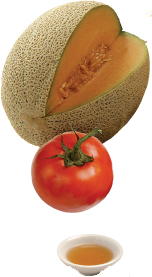
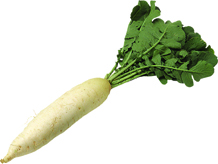
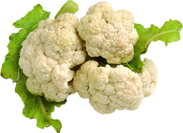

ONION
Onion is a wonderful source of minerals and micro-minerals–like sulfur– in addition to vitamins C and B and flavonoids, which are a strong antiviral remedy. This vegetable also has antibacterial properties and helps to relieve and treat ailments. You should eat at least ½ onion in your daily diet, alone or in salads, sauces or vegetable dishes.
ONION SYRUP
Dice 1 medium sized onion and mix with 3 spoonfuls of honey. Add water and cook in a double boiler. Let sit for 3 hours and then filter. You should drink between 5 to 10 spoonfuls throughout the day. This remedy can be given to children, but it's not recommended for children under 1 year of age.
ORANGES
Other than a high content of vitamin C, the oranges carry a number of fito-nutrients and antioxidants, including alpha-carotene and beta-carotene that protect the body. It helps the body to prevent and effectively fight against the common cold. Eating an abundant amount of oranges reduces cold symptoms and helps you get over illnesses quicker. Remember to eat the fleshy white skin below the rind that contains a high amount of bioflavanoids, which have a high concentrate of vitamin C.
ORANGE SALAD TO CURE A SORE THROAT
Peel 1 orange and cut it into slices. Add the orange slices to a leafy green salad, arugula for example, and if you like, add chopped sautéed onion. Add dressing to taste. Drinking orange juice is also a great way to increase your vitamin C intake (1 glass contains 90 mg of vitamin C).
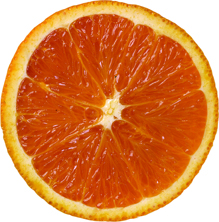
SQUASH/PUMPKIN
Helps to strengthen the immune system. Rich in beta-carotene and alpha-carotene (which gives its orange color) and antioxidants (vitamins C and E). Pumpkin seeds carry properties that help remove mucus from the lungs, bronchioles and throat. Because it is rich in antioxidants, it can help protect you against common colds and certain flu strains.
ANTI-COLD BABY FOOD
Peel a large pumpkin; cut into pieces and steam. Next, blend in a blender so that the seeds are ground. Serve with a touch of olive oil. This is an excellent dish for children under the age of 5. Mashed pumpkin can be mixed with mashed summer squash (1 serving of 1/2 cup has approximately half the recommended daily intake of vitamin C for adults).
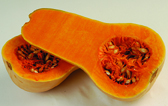
Vitamin E
It is also known as tocopherol and has four types: alfa, beta, gamma and delta. A fat-soluble vitamin that acts as an antioxidant, it is important in the formation of red blood cells. Recent research has shown that vitamin E helps to strengthen the immune system and to prevent viral and bacterial attacks. Along with vitamin A, it helps to protect the lungs against pollution.
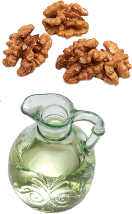
Warning. If you are taking an iron supplement, you should wait 8 hours before taking this vitamin. In high doses it can increase your blood pressure. Vitamin E is found in wheat germ, broccoli, nuts and other seeds, olives, vegetable oils (corn, sunflower, soy), avocado, asparagus, spinach and other leafy green vegetables.

APPLE CIDER VINEGAR
Vinegar is produced when the acetic acid bacteria in alcohol change with the presence of oxygen. Over the centuries vinegar has not only been used as a condiment but also as a drink, preservative and natural remedy because it contains minerals and micro-elements like calcium, fluoride, magnesium, sodium, phosphorus, silica and potassium. Vinegar's curative properties are a result of the synergy between all of the ingredients, although the most important property is the antibacterial effect. For respiratory problems, apple cider vinegar can be used in vapor therapy to kill germs and to reduce bronchial mucus.

TO FIGHT AGAINST BRONCHITIS
Place 1 cup of cider vinegar in a bowl and add 2 cups of hot water. Inhale the steam between 5 to 10 minutes, taking in deep breaths with your head leaned over the bowl, a hand towel over your head to avoid losing steam. You can also use this mixture for compresses on the chest (tepid for chronic problems and cold for fevers).
To strengthen the respiratory system, you can prepare an infusion of apple cider vinegar and several spoonfuls of honey mixed together.

Vitamin P
Vitamin P's bioflavanoids enhance the action of vitamin C (so that the vitamin C is not destroyed by the air) and increase your resistance to infections. Vitamin P is not strictly speaking a vitamin. It is a classification of bioflavonoids, which refers to many different ingredients. It is also a powerful antioxidant that helps to neutralize damage caused by free radicals. Bioflavanoids are found in citrus fruits, cherries, plums, berries, red grapes, green peppers, broccoli and tomatoes.
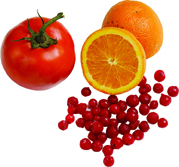
Vitamin B 2
B 2 is a water-soluble vitamin that supports the energy metabolism and the immune system, keeping the mucous membranes that coat the respiratory and digestive systems healthy. It's a vital vitamin for our bodies’ growth and cell reproduction, in particular to produce red blood cells. It helps the body to absorb iron and in the assimilation of vitamins A and B 1 . Natural sources are meats, dairy products, wholewheat flour, wheat germ, green veggies, dried fruits and yeast.

HONEY
This sweet substance may act as a general antibiotic and carries inhibitors that may fight bacteria and avoid infections. It helps to relieve cold symptoms and soothe irritations. It can be used as a daily supplement. Because of its sweet and delicious taste, it is good for children. Due to honey's high sugar content, be sure to brush your teeth after eating it. Safety. Children under 1 year of age should not consume honey, because the intestine is not fully developed to digest this food.

SWEET ANTI-FLU REMEDY
If you are suffering from the flu, colds or other respiratory infections caused by bacteria, you can take 4 spoonfuls of honey per day. In the case of fever or coughing, it's best if you can find honey made from linden. Another option is honey made from lavender, cabbage flower or mint. Once you've cleared up the infection, it's good to continue taking 1 or 2 spoonfuls of honey a day for 3 weeks, to help stabilize the immune system. For chronic bronchitis, take 6 spoonfuls of honey a day for 4 weeks. Lemon juice sweetened with honey (to drink before going to bed) is an excellent remedy for common cold symptoms.
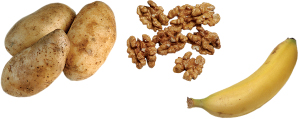
Vitamin B 6
Of all of the B complex vitamins, B 6 is crucial for the immune system's health, because it plays an important role in boosting the production of antibodies that our bodies use to fight diseases. It helps to prevent infections (among those, respiratory illnesses) and is a vital part of the immune system's functioning. It is also necessary in the absorption of B 12 (in general all B complex vitamins work together and are found in the same types of foods). It is also fundamental in increasing the levels of serotonin (a natural brain chemical), that reduces the risk of aches and pains in the body. This is why B 6 is an effective vitamin for pains and symptoms related to premenstrual syndrome. It is water-soluble, and cooking can destroy up to 90 percent of this vitamin found in foods.
It's suggested that you eat fresh or undercooked foods for B 6 intake. Seeds, whole grains, beans, bananas, nuts and potatoes are all rich in B 6 .
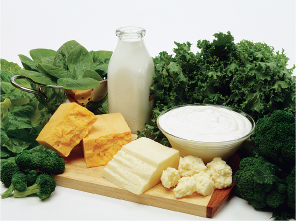
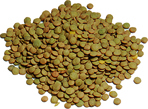
Folic acid
Folic acid is a B complex vitamin that boosts the immune system and helps to prevent respiratory illnesses, especially colds and flu. A folic acid rich diet should include plenty of whole grains, beans, fruits and green leafy vegetables.
LENTILS
Other than being a folic acid rich food, lentils are also high in B 1 , B 2 , B 3 and B 6 vitamins. They are also a great source of protein, especially if prepared with rice. They are rich in iron, calcium, zinc and potassium. A dish prepared with lentils is a very complete and beneficial food, because it helps to fortify the immune system.
HEALTHY SALAD
For a delicious and health supporting fresh salad
Slice 2 carrots and 1 onion.
Add 2 diced garlic cloves, lentils, bay leaf and 1 teaspoon of thyme. Cover and cook for 15 minutes on a low heat. Drain and remove the bay leaf. Put the lentils in the refrigerator to cool. Dress with olive oil, salt and pepper. It can be served at room temperature.

CHILIES AND PEPPERS
Strengthen the immune system and act as a natural pain reliever. The plant's active substance, capsicum (which gives peppers their hot, spicy flavor) also stimulates the immune system. They are also rich in vitamin C and carotene. Eating peppers as part of your daily diet can aid in reducing and shortening your illness. A medium pepper contains three times more than the daily-recommended intake of vitamin C for adults.
Safety. It's important to avoid cayenne pepper in infusions and gargling during pregnancy and breastfeeding.
Zinc
Is an essential mineral needed to support your metabolism and it has antiviral properties that help to relieve colds. It supports the immune system, because it stimulates the division and development of the cells that defend the body. It helps the body's natural ability to shield against bacterial infections. Some studies have shown that diets which include a zinc supplement reduce the incidence of respiratory infections. Zinc is found in: red meat (veal, pork and lamb ), peanuts, beans, seafood, whole cereals, egg yolks, brewers yeast, liver, sunflower seeds and pumpkin.
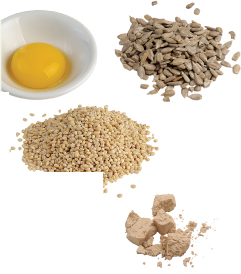
GROUND PEPPER
You can make a rice dish with sautéed red peppers and add different ground peppers, like sweet red pepper, paprika, or cayenne. Add a drop of olive oil before serving.
Iron
Essential for the support of the protein hemoglobin and red blood cells. An iron deficiency can cause a drop in your immune system. Children who have a diet lacking iron tend to get sick more often. They tend to be weak, get exhausted and frequently catch the flu and colds. Children and teenagers who have a poor diet often suffer from anemia caused by low hemoglobin in the blood brought on by an iron deficiency. The best sources for iron are liver, lean red meat, tuna and salmon, fortified cereals, whole grains, eggs (the yolks are rich in iron), dried fruits, nuts, seeds and leafy green vegetables.

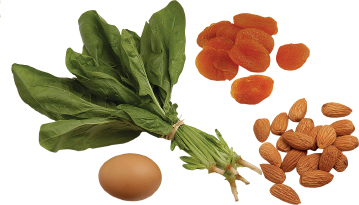

Comment about this article, ask questions, or add new information about this topic: